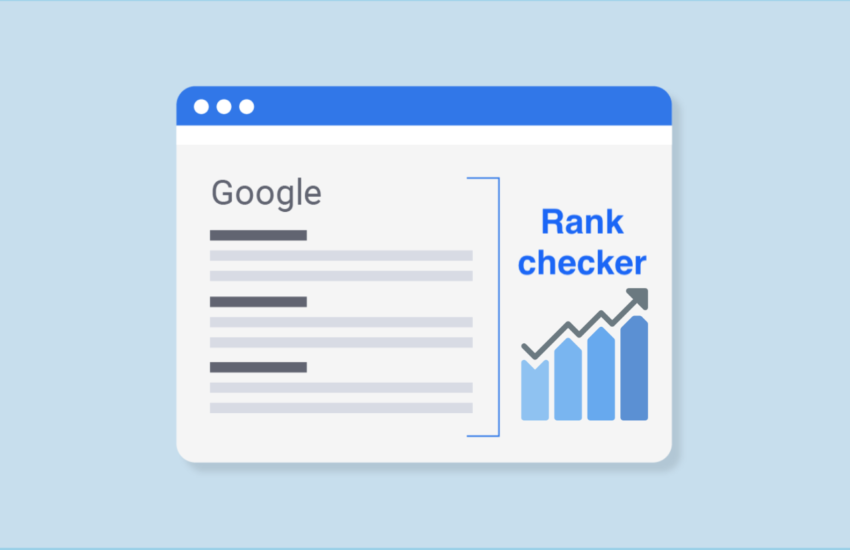In the digital age, staying visible on search engines is essential for any business or content creator aiming to attract more traffic. One key way to gauge this visibility is by regularly checking search engine rankings. But why exactly should you be concerned about your search engine position? Simply put, if you’re not ranking high enough, you risk losing valuable traffic to competitors. Whether you’re a small business owner, marketer, or website administrator, understanding how to check search engine rankings and taking the necessary actions to improve them is pivotal to success.
In this blog, we will explore the best methods to check search engine rankings, why it’s important to track your position, and how to improve your rankings over time. We will dive into tools, strategies, and tips that can help you keep your website’s SEO performance on track, backed by expert insights and solid advice.
Understanding Search Engine Rankings: What They Mean
Before we dive into the process of checking search engine rankings, it’s essential to first understand what rankings are and how they impact your digital presence.
Search engine rankings refer to the position your website holds on a search engine results page (SERP) when someone searches for a particular keyword or phrase. This ranking determines how visible your website is to users searching for information, products, or services related to your business.
The better your website ranks for relevant keywords, the more likely it is that users will click on your site, leading to increased organic traffic. However, the key to achieving and maintaining high rankings is consistent monitoring and optimization. Without tracking, you won’t know if your efforts are working, or if you need to adjust your strategy.
Why You Should Regularly Check Your Search Engine Rankings
Checking search engine rankings isn’t just about patting yourself on the back for a job well done when you hit the top spot; it’s about consistency and improvement. Here are a few reasons why it’s important to check your rankings regularly:
Monitor SEO Performance
By checking your search engine rankings, you can gauge whether your SEO efforts are producing the desired results. If you’ve been optimizing your website for certain keywords, ranking higher indicates that your efforts are working.
Competitive Advantage
Keeping an eye on rankings also helps you understand how your competitors are performing. If they are surpassing you in keyword rankings, it may be time to adjust your approach and outsmart them with better content or SEO tactics.
Track Algorithm Changes
Search engines, particularly Google, frequently update their algorithms. These changes can significantly affect rankings, which is why keeping an eye on your rankings will help you stay ahead of these shifts.
Identifying New Opportunities
By checking rankings for a variety of keywords, you can identify new opportunities for content creation. If certain keywords are ranking well, consider creating content around those topics to further capitalize on that visibility.
How to Check Search Engine Rankings
Now that we understand why it’s important to monitor your search engine rankings, let’s look at how you can actually do this. Several methods and tools can help you check rankings effectively, and we’ll explore the most popular and reliable ones.
Using Google Search Console
Google Search Console is a powerful and free tool that allows website owners to monitor their site’s performance on Google. It provides valuable insights into how Google crawls and indexes your website and gives you direct information about your rankings.
How to Use It:
After setting up Google Search Console for your website, you can navigate to the “Performance” tab to view keyword rankings, impressions, clicks, and average positions for your site.
Benefits:
It’s free, and it provides data directly from Google, offering a high level of accuracy.
Third-Party Ranking Tools
Several third-party tools are available for checking search engine rankings, each offering different features and analytics. Some of the most popular ones include:
- SEMrush: A comprehensive SEO tool that allows you to check keyword rankings, perform SEO audits, and track competitors.
- Ahrefs: Known for its powerful backlink analysis, Ahrefs also offers a keyword tracking tool to monitor your rankings over time.
- Moz Pro: Another industry-standard tool that provides accurate ranking data and in-depth keyword analysis.
These tools offer more advanced features, such as competitor tracking, local SEO performance analysis, and tracking for multiple search engines like Bing and Yahoo.
Manual Search Checking
If you’re just starting out or only need to track a few keywords, performing manual searches on Google can also be effective. Simply type the keyword into Google and note where your website appears in the results. However, there are some limitations:
Accuracy:
Google personalizes search results based on user history and location, so results may vary.
Time-Consuming:
Checking rankings manually can be tedious, especially if you have many keywords to track.
To mitigate some of these issues, consider using Incognito Mode or clearing your search history before performing manual checks.
Tools and Features for Accurate Ranking Analysis
In addition to using ranking tools, it’s crucial to analyze your results in-depth to get the most value. Here are some key features and tools to consider:
Local SEO Tracking
If your business operates in a specific region, tracking local rankings is essential. Google’s local pack results can vary significantly from national rankings, so make sure your rankings are optimized for your geographic area.
Mobile Rankings
With mobile-first indexing becoming increasingly important, tracking your mobile rankings is crucial. Many ranking tools now offer insights into how well your website performs on mobile devices.
Competitor Analysis
Many ranking tools offer competitor analysis features, helping you understand where your competitors stand in comparison to your website. This can reveal new opportunities or gaps in your strategy.
How to Improve Your Search Engine Rankings
Simply checking your rankings isn’t enough. Once you identify where you stand, the next step is to improve your rankings. Here are a few strategies to consider:
Keyword Optimization
Ensure you’re targeting the right keywords. Use tools like SEMrush and Google Keyword Planner to discover high-traffic, low-competition keywords that you can rank for.
Create High-Quality Content
Content is still king in SEO. Focus on creating valuable, informative, and engaging content that answers user queries. Ensure your content is optimized for the keywords you’re targeting, but don’t overstuff.
Improve Site Speed
Page load speed is a critical factor in search rankings. Google prioritizes fast-loading websites, so invest in optimizing your site’s performance.
Build Backlinks
High-quality backlinks signal to search engines that your content is trustworthy. Focus on building relationships with reputable sites in your niche to acquire valuable backlinks.
Mobile Optimization
Ensure your website is mobile-friendly, as Google prioritizes mobile-optimized websites. Tools like Google’s Mobile-Friendly Test can help you identify areas for improvement.
Expert Insights on Search Engine Rankings
To give you further insight into why search engine rankings matter, here’s what expert Neil Patel, a renowned figure in digital marketing, has to say:
“Search engine rankings determine the visibility of your website. The higher you rank, the more organic traffic you get. But it’s not just about ranking well; it’s about ranking for the right keywords and optimizing your site for the best user experience.”
This quote from Neil Patel emphasizes the importance of not just ranking well, but also understanding the broader context of user experience and keyword strategy.
Conclusion: Checking Search Engine Rankings for Long-Term Success
As we’ve explored throughout this guide, checking search engine rankings is a crucial part of maintaining and improving your online presence. It gives you insight into how well your SEO efforts are paying off and provides the opportunity to adjust strategies when needed. By using tools like Google Search Console, SEMrush, and Ahrefs, you can track your rankings more effectively and make data-driven decisions to improve your website’s performance.
Don’t forget: search engine rankings are not static. They change over time, so regular monitoring is essential to stay ahead of your competition. Keep improving your content, user experience, and SEO strategies to ensure your rankings continue to rise.
you may also read
Guest Blogging for Maximum SEO and Audience Growth



